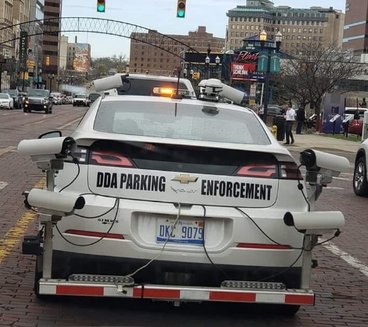Episode 036 - The Frugal Millionaire, Part 3 - Cars
Cars are the most expensive technological purchase that most of us will make. Yet saving money with them seems to be something we fail at more than succeed. In this episode we will revisit general best practices at frugal car ownership and you might be surprised at the recommendations.

Click on the player above to listen to the episode or download it. You can subscribe to the RSS Feed here.
Show Notes
Cars. The 21st century lifestyle includes taking advantage of technology that lets you span larger geographic areas than in previous times. It was only about 100 years ago when personal transport changed from horse to automobile, and with that the desire of the “open road” and being able to travel to different places under your own control became second nature to the human experience.
With this technology, our world seems much smaller. If you choose to have a job, your employment can be with employers that are further away from where you live, changing the supply & demand curve of labor. City planners build high speed transit freeways to service those that need to travel and charge the costs of those roads in the fuel costs of the vehicles at the gas pump.
You can purchase things from decentralized warehouse operators and have those things brought to your door because of road transport, allowing us to engage with manufacturers all over the world and take advantage of geo-arbitrage to get product pricing as low as possible.
And cars allow you to take part in other forms of vacations, namely the “road trip” in which you can see your country by the road rather that flying over it to get to your destination, or taking more expensive rail trips. Cars are part of our lives. To pretend they are not, would be to return to a life in the 1800s and be excluded from partaking in the benefits that technology give us.
There are those that advocate for a world without cars. They wish to locate close to where their work or life options are, and use either public transport or bicycles to get from point A to point B. Although that seems more eco-friendly, the reality is that the cost savings that might come from being “sans-car” are quickly lost when they can’t take employment that is further away, cannot get to opportunities and become somewhat outcast. Therefore I’m not someone who even pretends for a minute that you can live a 21st century life without a car.
The thing is though.... A car is a VERY expensive technological machine. It is probably the most expensive technological machine that you will ever buy. And most families have one car per person in the household over the age of 16. If we understand the mechanical and technological nature of cars, we might find a way to have our cake & eat it too here. We want all the benefits that a car provides, but we don’t want the high costs of ownership to get them.
Is that possible? I think so. As a contrarian, I pick my battles and I’ve certainly had battles with cars. But I think I’ve come to a point where I can find some tranquility between obtaining what the car provides, without becoming a financial slave to it. And that is part of the unconstrained method. You must never become a slave to what you own. Cars provide a risk of you becoming that, so we’ll cover tricks and techniques you may wish to adopt that will give you the benefits at the lowest possible cost to get them.
There is no denying it that people have an emotional attachment to their cars. They go to collector car shows in the hundreds of thousands. They spend ridiculous amounts of money to acquire, maintain and enjoy their car. Their cars become a reflection to the world of who they want to be. Cars are like nice clothing - if you want to garner the right attention, drive the right car, so they say. If you want to tell the world that you have a certain status, drive a certain car.
Yet the status one wishes to promote seems to be a demonstration of dependency to banks with cars. We don’t see it that way but it is true. Cars, from their manufacture to their distribution & sales is all about banks. Not so much about cars. So I want to take you on a journey through the process of understanding cars and seeking out ways to have the benefits of them, without the constraints that come with motor vehicle ownership.
Let’s understand exactly what a car is
Combustion engine
Electric or Hybrid
The lifespan of a car
The attempt to make cars disposable
The costs of a car
Acquisition & Financing
Government fees (registration, licensing, smog checks, etc.)
Insurance and danger factors
Fuel and running costs
Maintenance
Preventative
Elective
Adverse
Disposal of a car
Total cost of a car over its lifespan
Sample case study
$20K car over 5 year ownership - $967 per month
$20K car over 8 year ownership - $806 per month
$20K car over 12 year ownership - $720 per month
$20K car over 20 year ownership - $652 per month
$40K car over 5 year ownership - $1238 per month
$40K car over 8 year ownership - $975 per month
$40K car over 12 year ownership - $833 per month
$40K car over 20 year ownership - $720 per month
$5K car (no finance) over 5 year ownershp - $592 per month
$5K car (no finance) over 8 year ownership - $571 per month
$5K car (no finance) over 12 year ownership - $564 per month
$5K car (no finance) over 20 year ownershp - $558 per month
The base cost per month of owning and running a car (regardless of its acquisition cost) is going to be around $550
Multiply that by the number of cars you have
You have to earn this amount just to have one or many cars
Why things like driving for Uber is a really stupid idea
If you use your car as a means of income, you have to drive it
Your time is now tied directly to income
But if you reduce the lifespan of your car, the base adjustment in a $20K car monthly cost from 20 year ownership to 5 year ownership is costing you $310 per month
You have to make $310 just to have the same baseline to begin from first
And that doesn’t factor in increased maintenance, tyres, fuel, and insurance policy changes
A more realistic base level monthly cost to cover is going to be $500 a month, and that is probably conservative. After that, you get paid for your time which is probably negligible when you consider the hours spent vs. gross profit earned
Cars are an expense - not an asset
Cars depreciate quickly
Cars probably don’t make you money directly
But the base level costs of living in the western world comes at a real price
If you worked from home and reduced fuel & maintenance down to 50%, the impact on your monthly costs for the sample car changes it by $120 a month per vehicle.
Economical demographics
Those below poverty line ($20K annual income) would devote 30% of their entire income to one car
After rent + food + utilities, on average a $20K income would not have enough to cover a car
Those thinking that they could retire early on $40K annual income and ran one car would see approx 19% of their entire income going to the car
To obtain $40K of income from cash savings, based on current interest paid on Money Market level accounts, would require $4 million saved, and that money would degrade at the rate of inflation to almost nothing in 10 years.
If the retiree was not able to use Medicare or Medicaid (govt subsidized health care), the monthly cost of premiums is likely to be $800 for a family, which puts a car out of reach for most.
Life without a car
Restrictive - society assumes you have access to services in a 20 mile radius from home base
Bus schedules would be possible or other public transport
Bicycle might work, but roadways are not designed for bikes and danger is high
Transport of groceries impossible without a car
Delivery services might help here, but the cost of delivery has to be considered a baseline cost
Uber might be viable depending on your area and costs
Very cheap in Mexico, for example
Expensive in USA
Move to cities that have adequate public transport, but that comes at a higher rental cost typically
Bottomline - we need a car and we have to find a way to have them
What can you do to reduce costs?
Work from home
Car pool or rideshare
Prefer using Uber than driving
Manufacturers & Banker Collusion
In the 1990s, the Toyota & Honda (Japanese car) dominated auto sales
Quality was #1 reason
Since about 2005, CFOs realized that quality was a loss leader
Manufacturers since tried to reduce lifespan of car to 7 years or less
Financing was extended to the full 7 year period
Third party service centers were penalized over dealer service
ODB2 computer integration
“Right to repair” legislation in states
Collusion with smog check laws favoring newer vehicles
Dealership income
49.6% of dealership profit comes from the service department (NADA)
New car sales profit only represents 26% of profit, and 25% from used
Manufacturers know that in order to sell cars, they have to artificially support the service department and design reflects this
Dealership average hourly charge rate for service is $125 per hour
Independent repair shops average hourly charge rate for service $80 per hour
Dealership service departments often run on quotas, where all repairs have a target price point (ie. $1500)
Don’t forget, it isn’t the hourly rate - it is the number of hours
Parts are cheap and can be often sourced on used or aftermarket by indy repair shop techs
Cars that are pre 2000 will typically be easier for indy repair shops to service
Engine simplifications in older cars will reduce labor hours dramatically
Repair shops won’t be forced to buy expensive subscription model software purchases in order to have data for older cars
Why sometimes buying an expensive European luxury car makes sense
Like in the 1990s, high end manufacturers are often more concerned with reputation over repetitve sales cycle
They charge more for acquistion, but assume less frequent
Even though service labor rates are usually higher, the frequency of repairs usually is lower - but this can be researched
If you are going to own a car for 20 years, you better make sure you love your car
The cost differential over a 20 year purchase for a $40K car vs $20K car is only about $70 a month
This could be easily offset by a reduction in the frequency of maintenance visits
These cars also tend to have a vibrant enthusiast and collector market, making parts easier to get
Electric cars
Most people think of electric cars (ie. Tesla) as being cheaper to run
Power costs to charge those cars is probably about 75% of the cost of gasoline
And unless you are generating your own solar power, the costs are not likely to be that different
The one thing, however, is maintenance should be WAY lower
Limited oil
Less number of items that can break
But batteries have a life expectency that makes it harder to achieve a 20 year ownership spread
And the level of computerization means you have no choice other than to use the dealerships for service
If you can reduce maintenance down, this could be a $100 a month savings and maybe another $75 a month in fuel savings
But this is easily lost if you are forced to buy a new car again in 8 years or less
There is no history of 20 years for these cars yet, so it is an unknown
Cost of entire battery bank replacement
Almost no “right to repair” on these cars either
Range anxiety means that as technology improves, most will swap out their cars in favor of those that can reach longer ranges
Distribution of charging stations still limited in many areas, making longer distance travel challenging
Price depreciation dramatic for early adopters - Tesla Model S at $100K vs. Model 3 at $40K
Lots of hidden costs with options and lack of aftermarket support
Taxes & Lease vs Buy
Those that don’t recommend leasing are not business owners
Businesses can get 100% expense write-off on tax for leased vehicles
Leased vehicles typically don’t have a maintenance factor as they are swapped out every 3 years
Lease costs are ongoing, but can be offset by the maintenance reductions
Does it make sense to “own” a depreciating asset?
What is your end goal - do you want to own the car, or do you want the use of the car?
Leases have restrictive usage policies, so may not make sense
I would favor a lease any day over anyone that wants to “Buy” a car but doesn’t intend to keep it for more than 10 years
Calculate the tax deductibility on a leased car as part of the overall purchase cost. The reduced maintenance cost + tax benefits may show this as a favored option for those that do run their lives like a business and prefer a new car every 2-3 years
Car accidents
Insurance companies are basically banks
The concept of a “write off”
Buy your car back after write off
Accept the reduced value in salvage titling it
Even if it costs you money to get your repaired car back, it probably is worth it if your goal is 20 year ownership
Disposal, Trade-In and Sale
Never let a dealership give you a trade-in
Know the real value of the car (ie. Kelly Bluebook)
Keep documented maintenance records for the entire life of the car
Treat your cars well - price difference on quality can be 25% of total valuation
Learn the rules & laws of car resale, titling, etc. in your region
eBay Motors works - so does Craigslist, etc.
Summary
We need cars - to pretend we don’t is stupid
We can reduce down the monthly cost of a car by changing behavior but there is no magic bullet
Consider maintenance as your best leverage to reduce costs
Electric cars are untested for long term cost of ownership
Don’t dismiss leasing for cars, particularly if you are setup as a business
If you want to own a car, attempt to do that for 20 years
Older cars are far better for longer term retention



